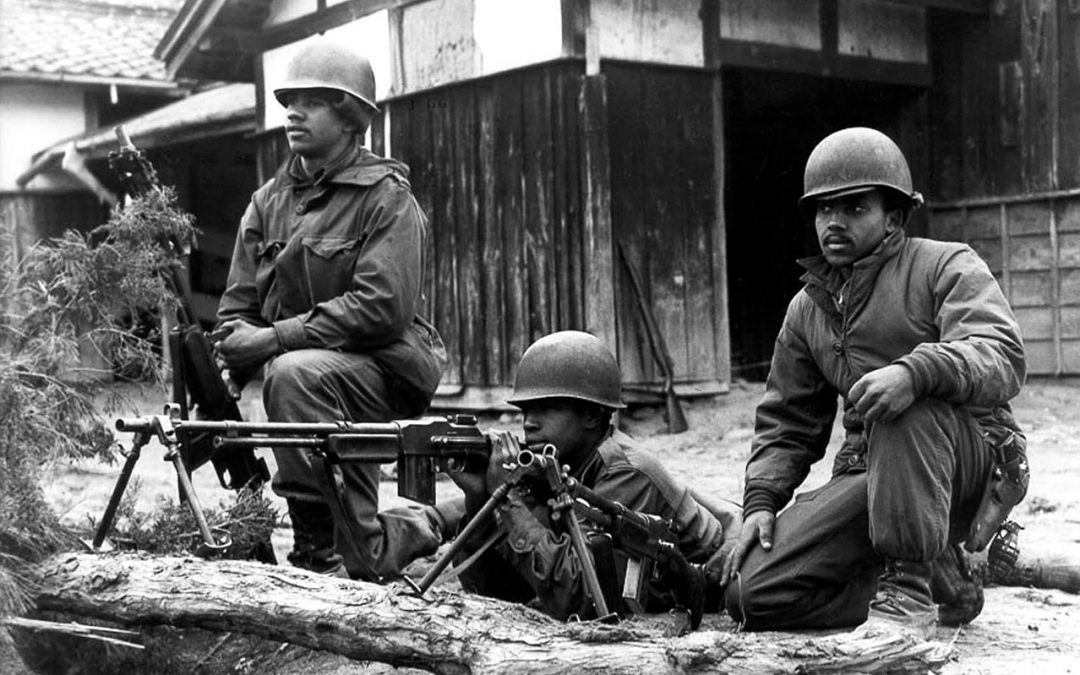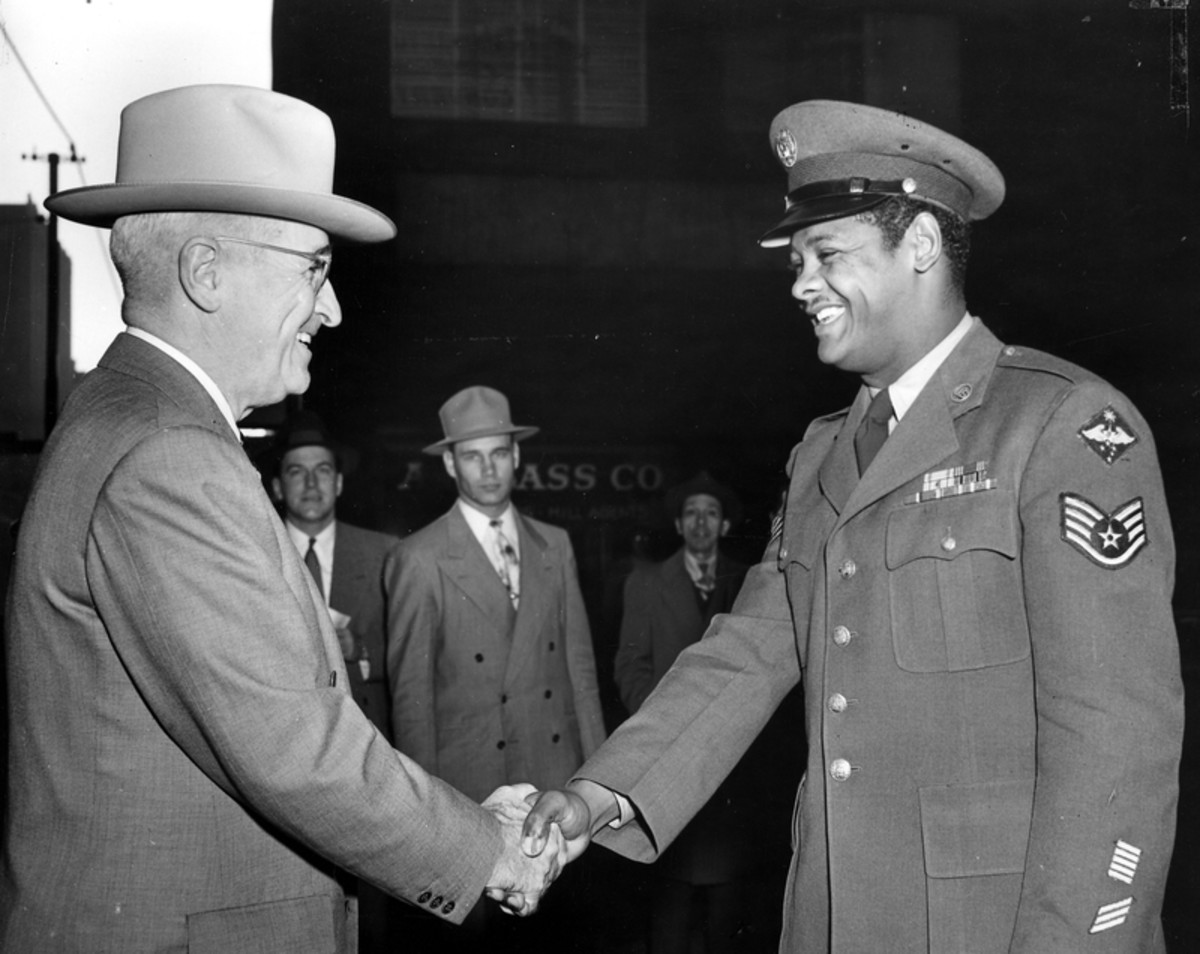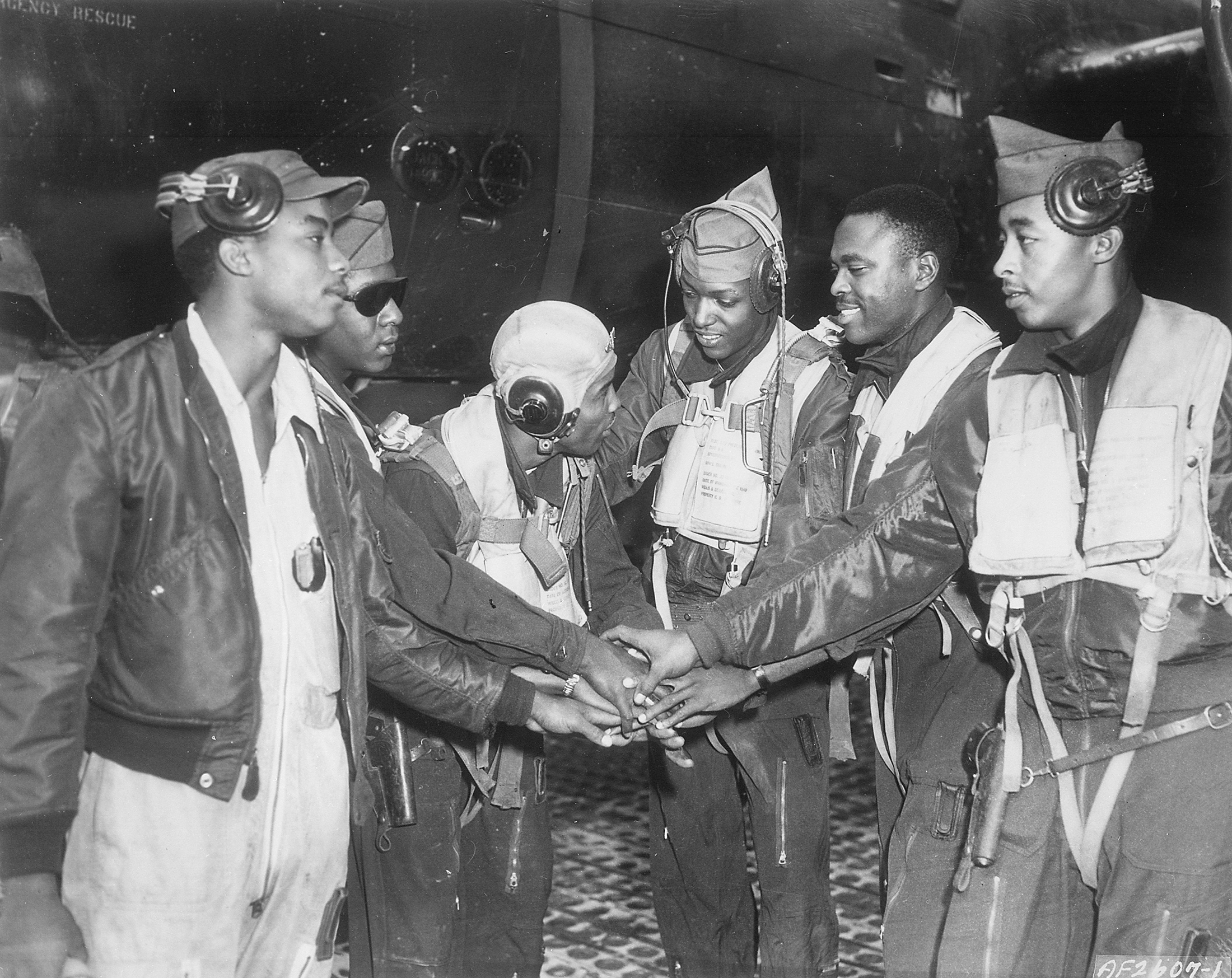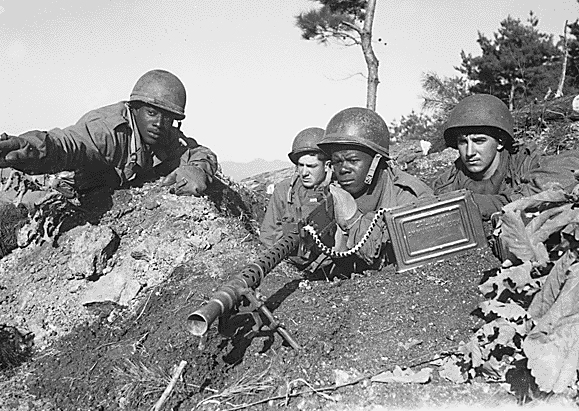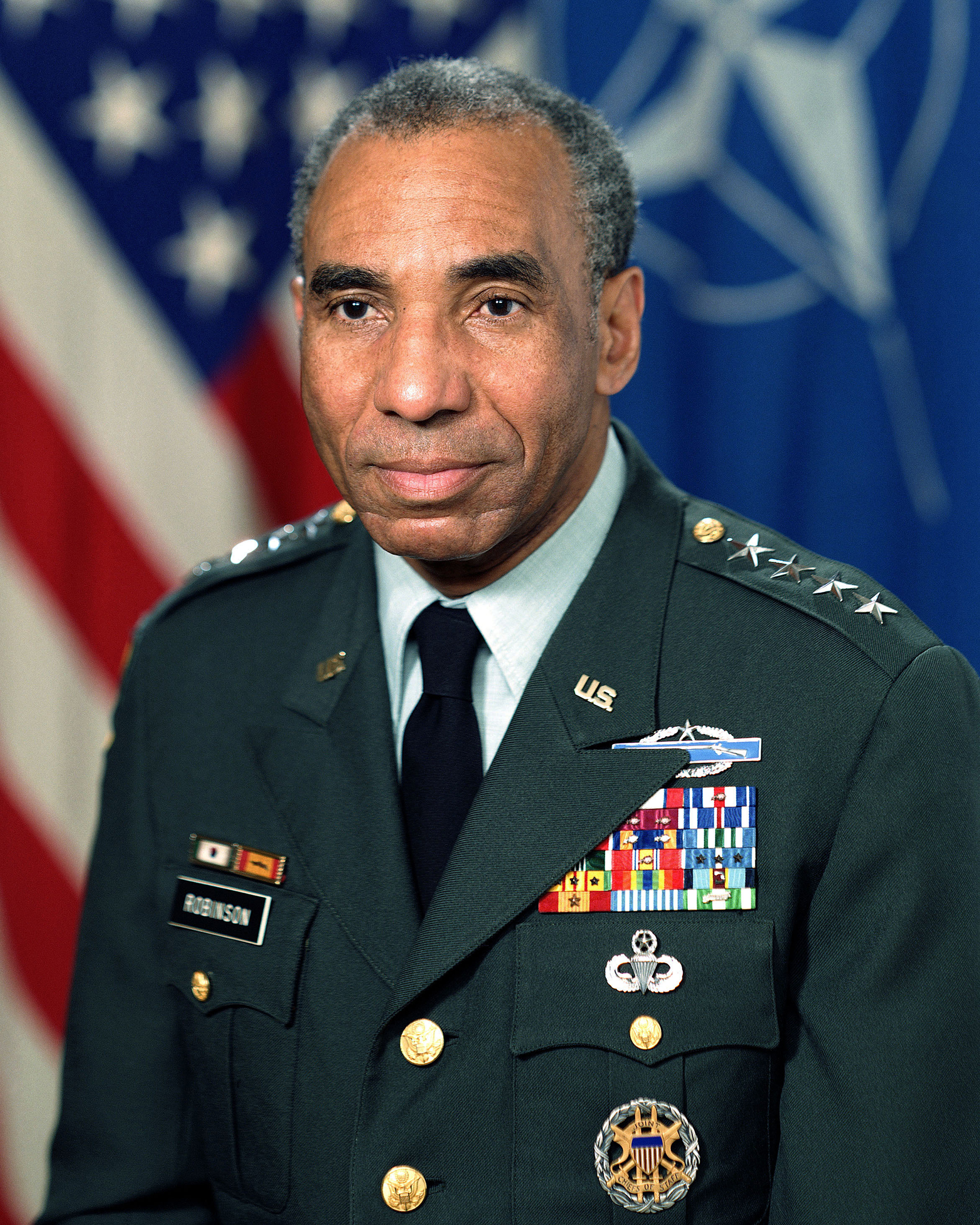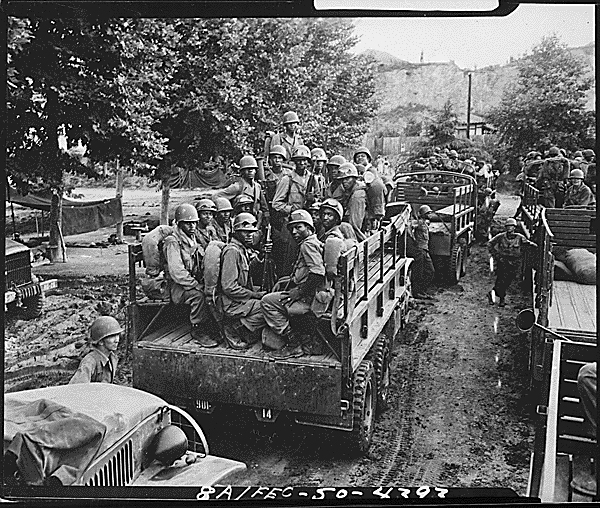Stories of War
Korean War
1950–1953
In 1948, President Harry Truman desegregated the U.S. armed forces by executive order, but change came slowly. Senior military leaders were slow to obey the order from their commander in chief, and many units remained segregated in practice in 1950.
The Korean War put that practice to the test. Unlike previous wars, Black Americans served in every branch and sector, and in all combat areas and major operations. In 1950 there were 100,000 Black troops across the U.S. armed forces; by the end, that number was 600,000. More than 5,000 gave their lives to stop the invasion of South Korea by communist forces.
Six gunners join hands as part of 17th Bomb Wing night interdiction teams in Korea.
National Archives
Private First Class William H. Thompson was near Haman, Korea on the Pusan Perimeter, when his platoon suffered a surprise nighttime attack in August 1950. Thompson, manning a machine gun, was wounded several times but refused to leave until his platoon reached safety. Still firing as they escaped, he was killed by an enemy grenade. Sergeant Cornelius H. Charlton took command of his platoon after his commander was wounded in fighting near Chipo-Ri, in June 1951. He led his men in three uphill charges, during which he was seriously wounded but continued the fight until their goal was achieved. Charlton died of his wounds a few weeks later.
Roscoe Robinson, Jr. was a platoon leader in Korea with the 31st Infantry. A graduate of the military academy at West Point, he became the first Black four-star general in army history in 1982. Corporal Charles B. Rangel was wounded in Korea while leading fellow soldiers behind enemy lines. Rangel went on to serve in the U.S. House of Representatives for New York from 1971 to 2017.
An integrated combat unit in a machine gun nest.
Defense Media Network
General Roscoe Robinson Jr.
U.S. Army
Tracing its origins to the original “Buffalo Soldiers” regiments, the 24th Infantry Regiment was still all-Black when it won the first victory of the war, at Yechon, in July 1950. The first Medals of Honor of the war were earned by members of the 24th. Later in the war, most all-Black units had been integrated by transferring troops between units. But the 24th Infantry Regiment had been created by Congress specifically as an all-Black unit. It was disbanded in fall 1951. The last all-Black units were gone by 1953.

